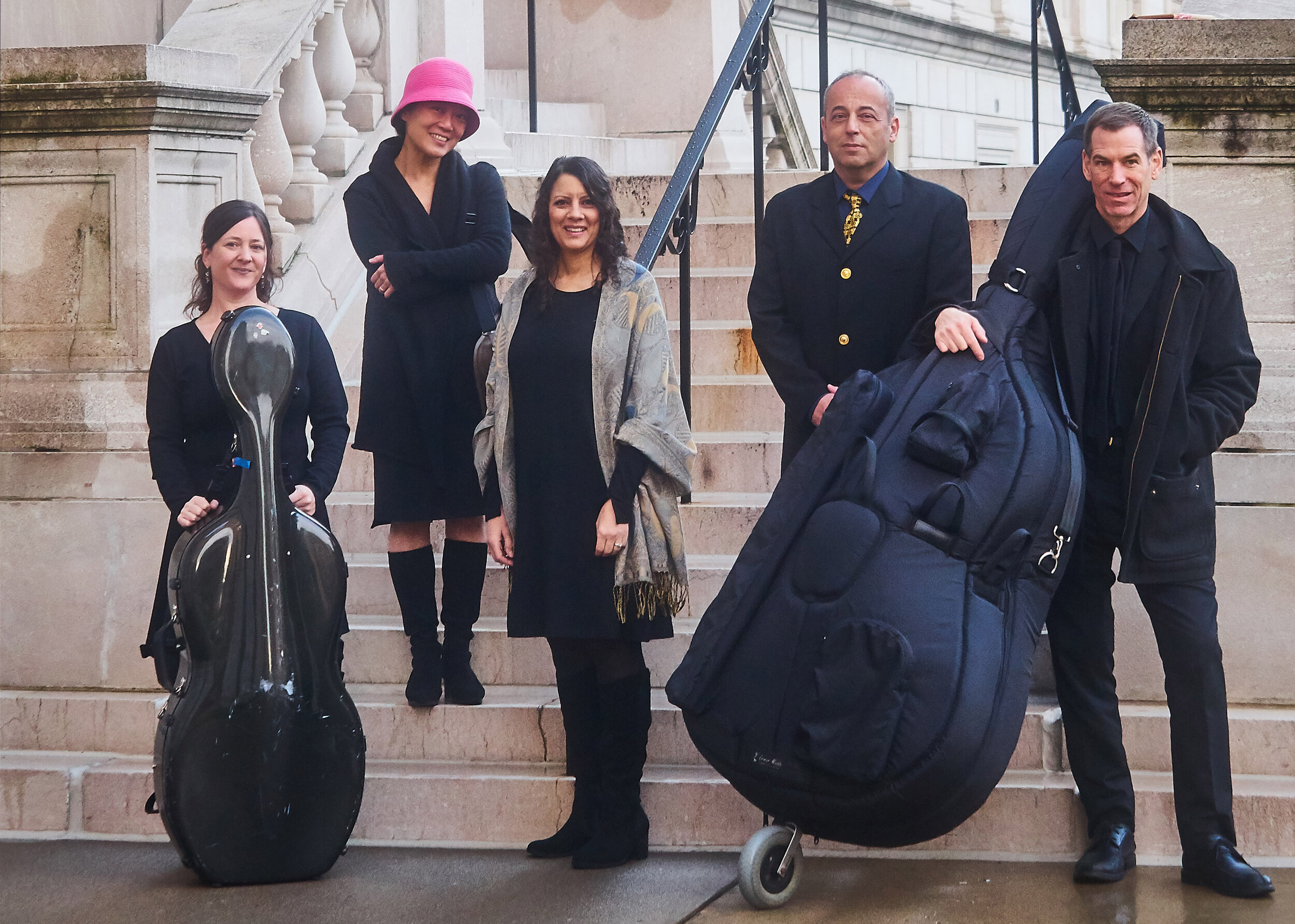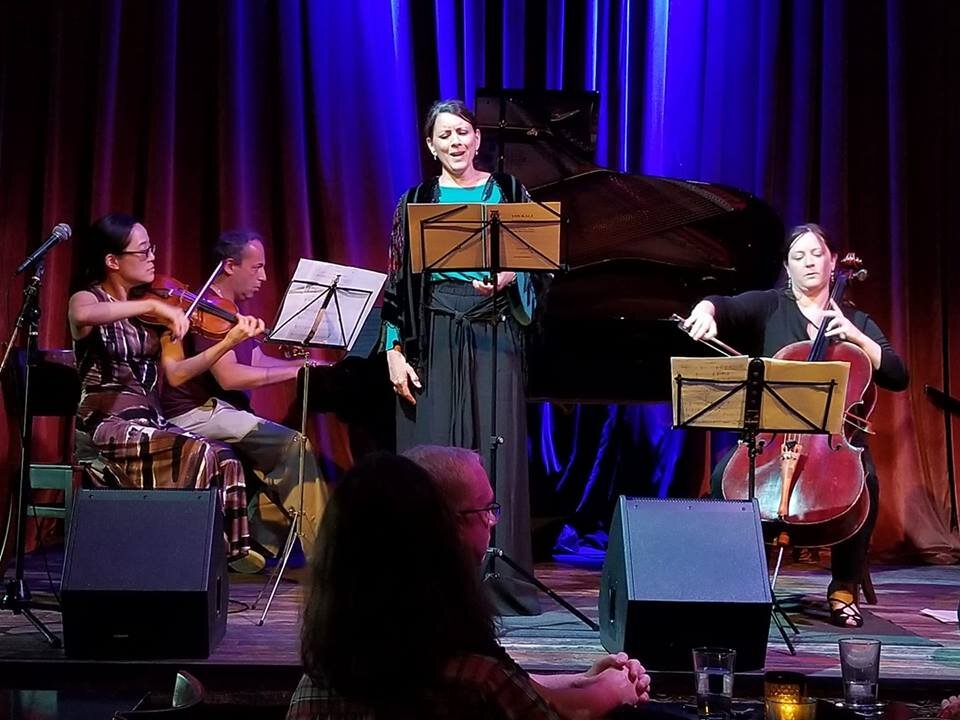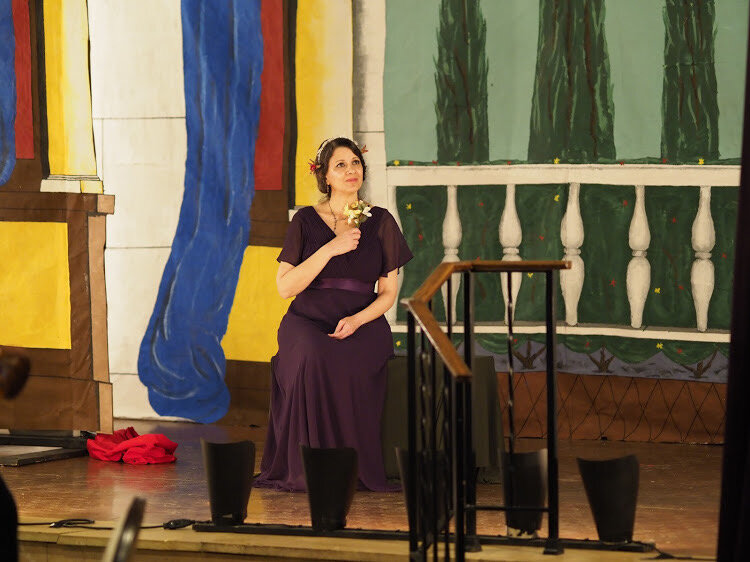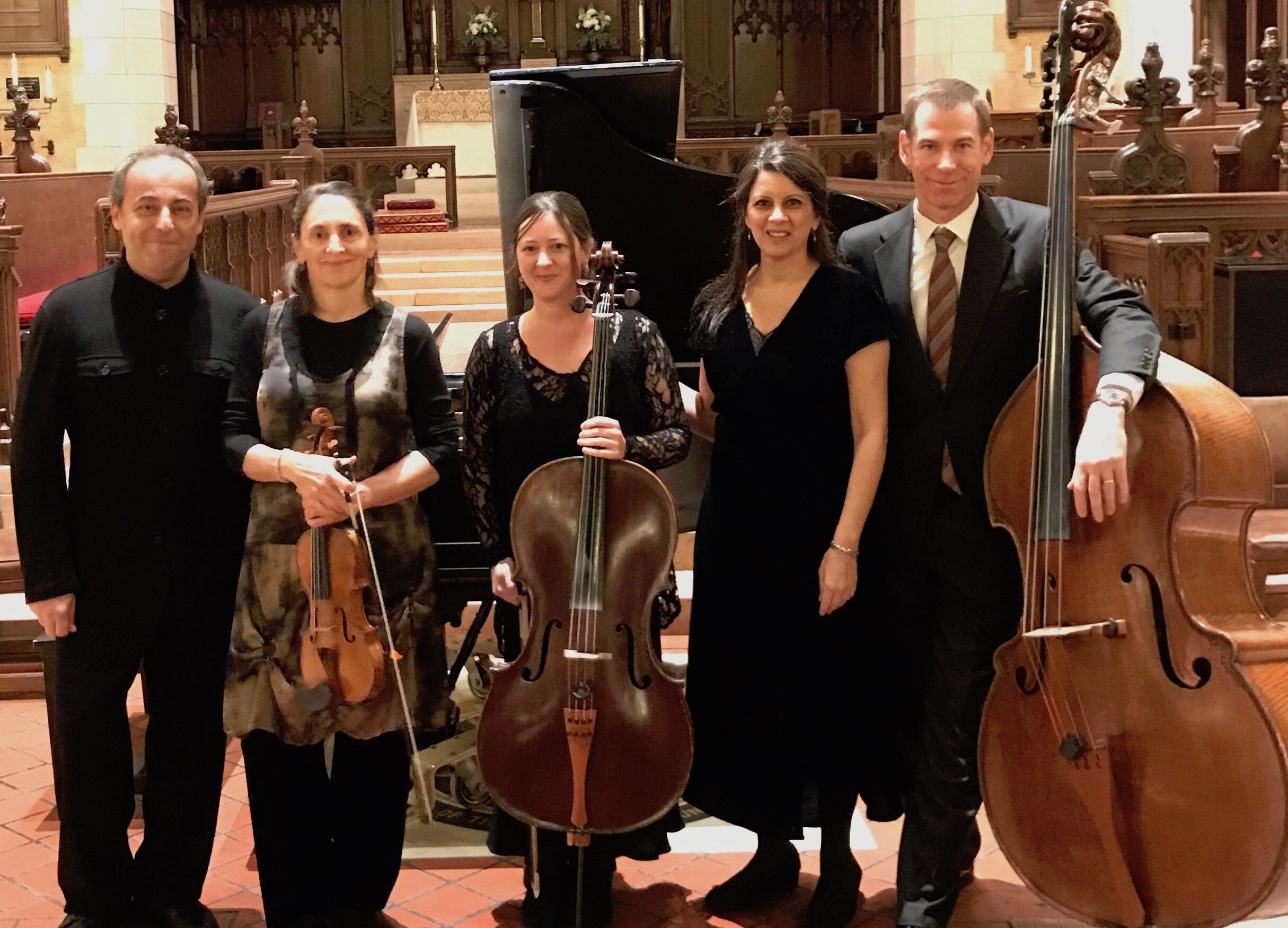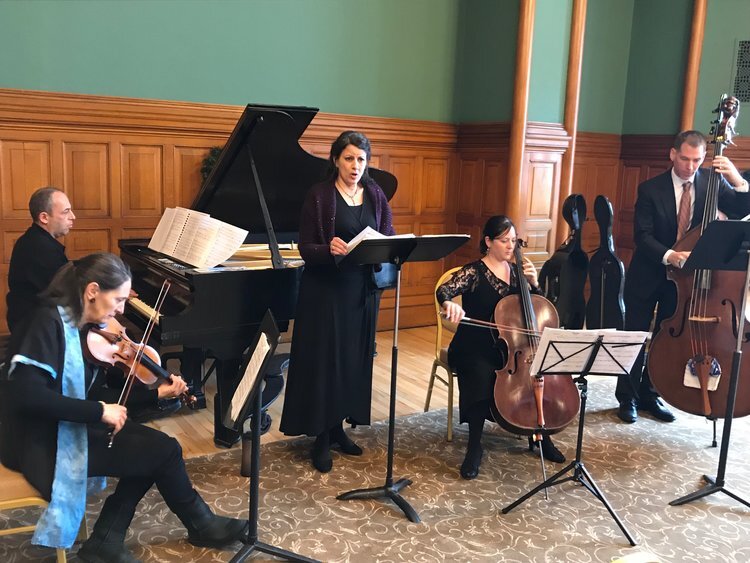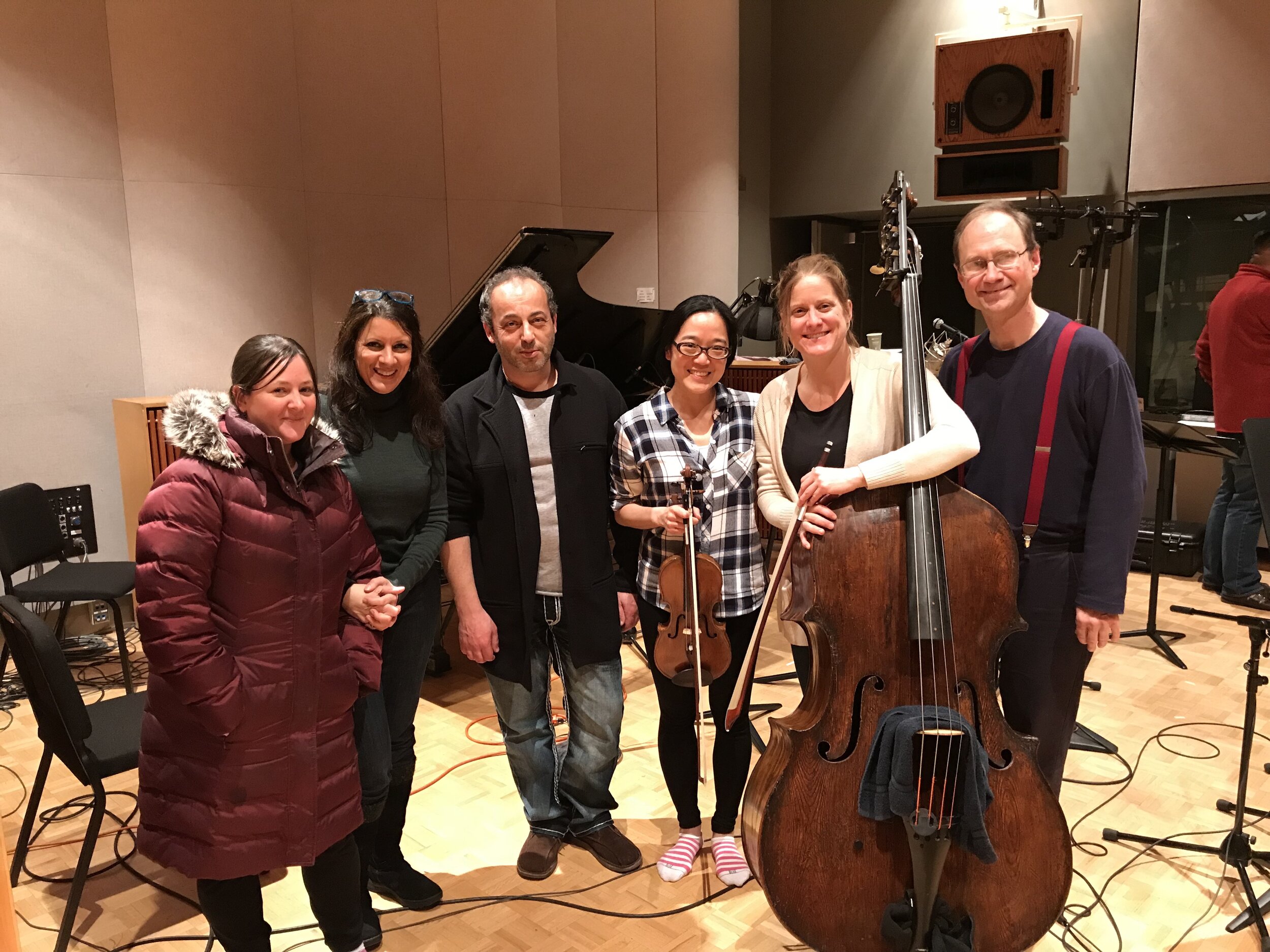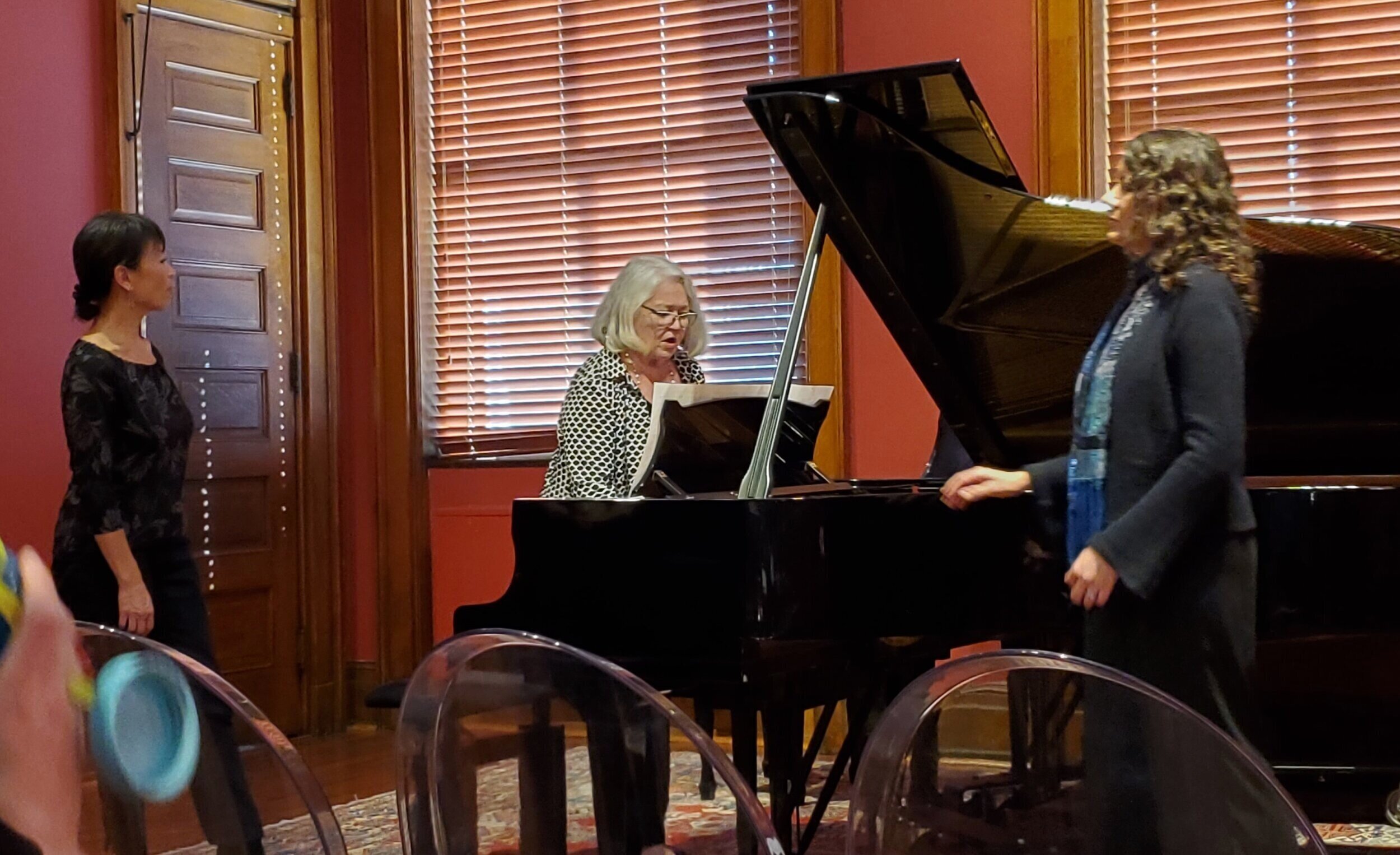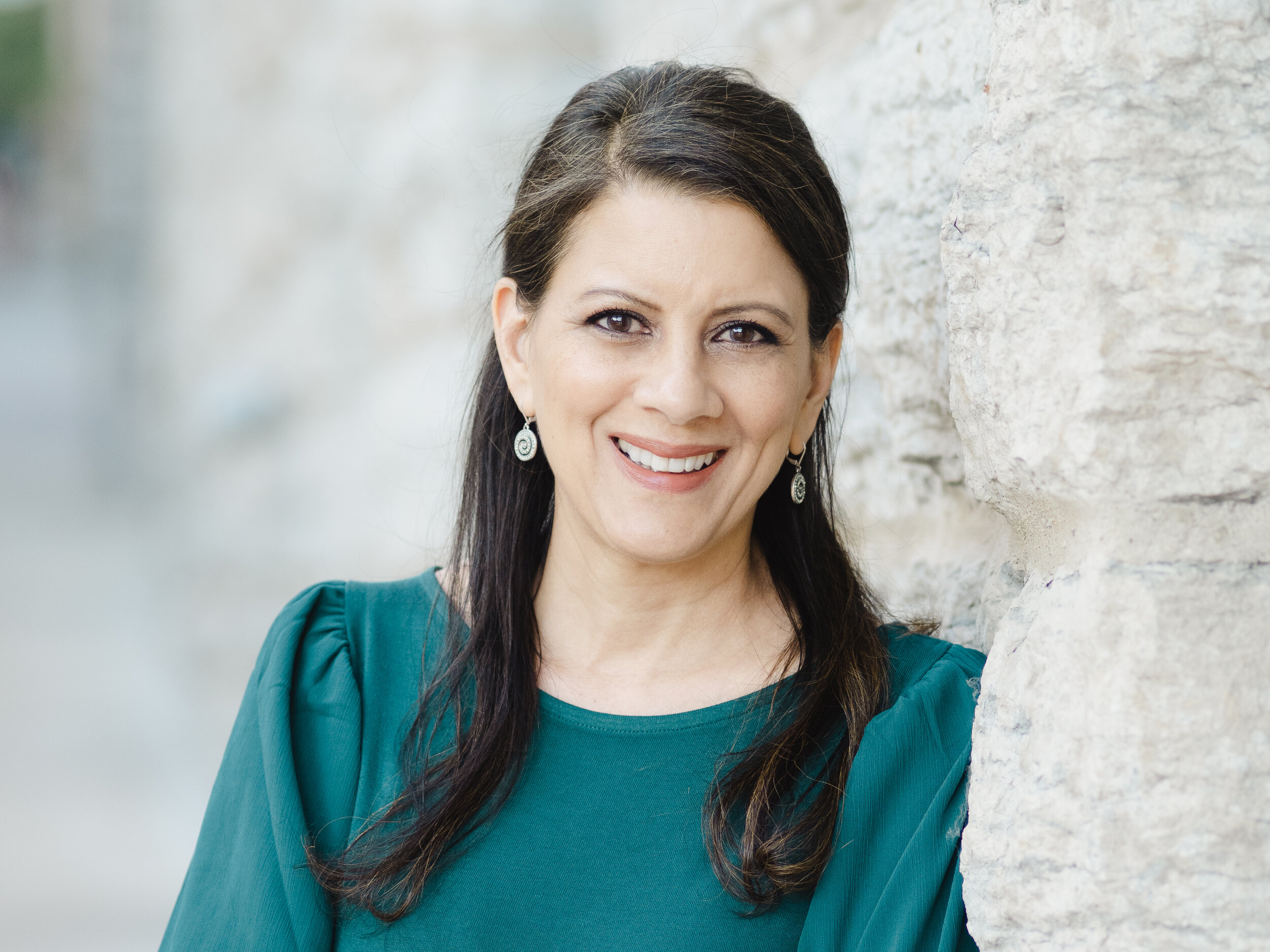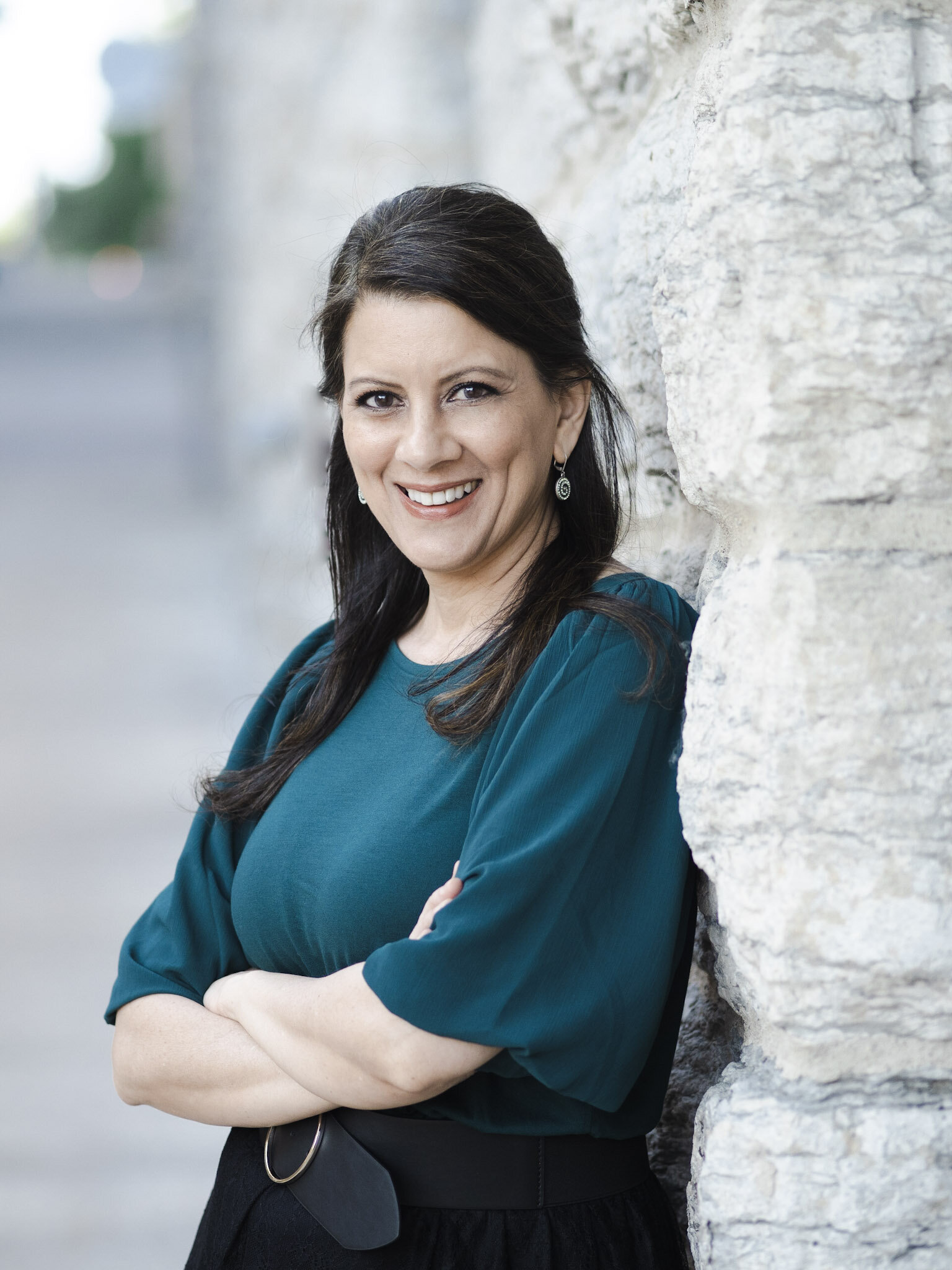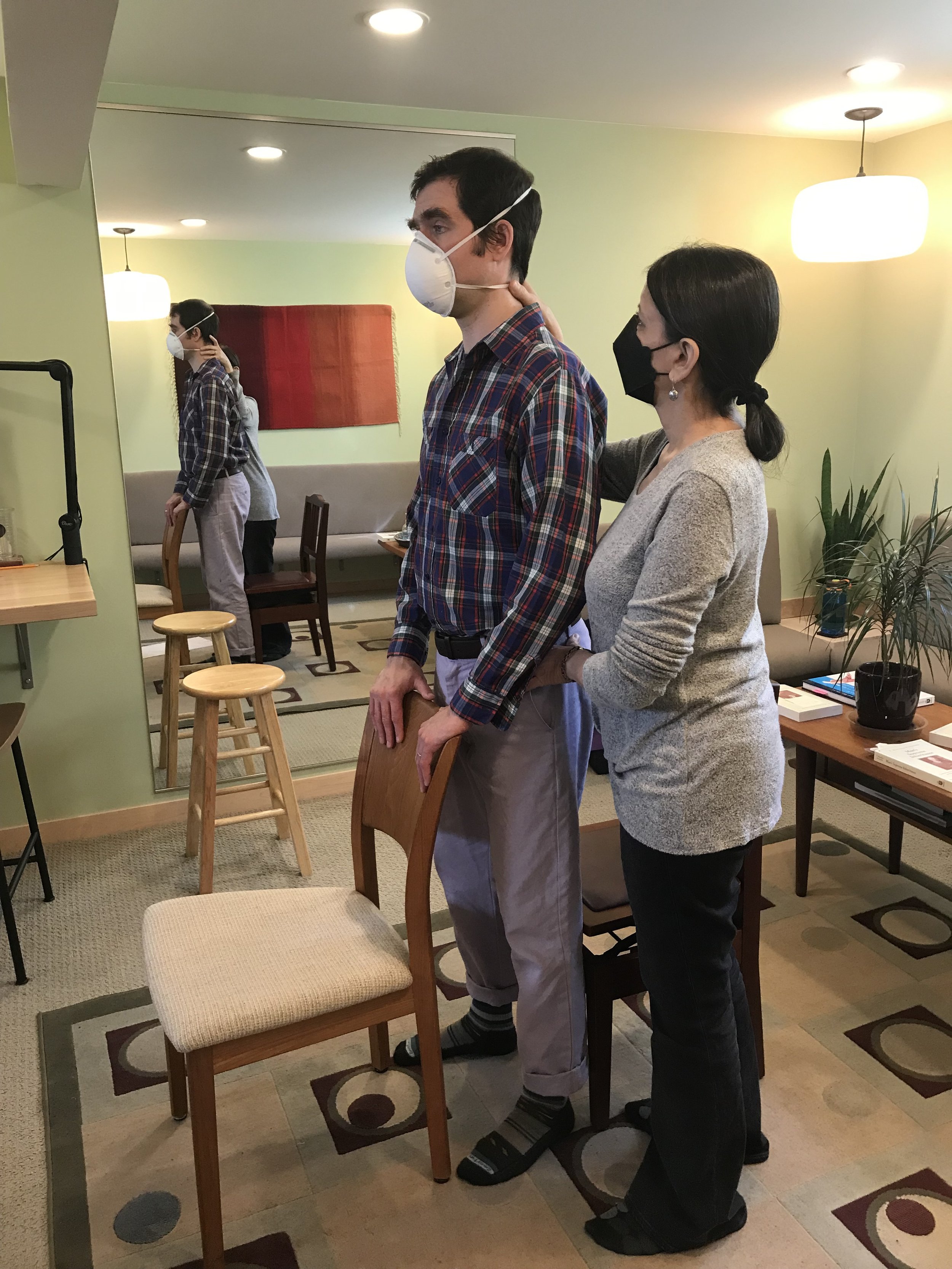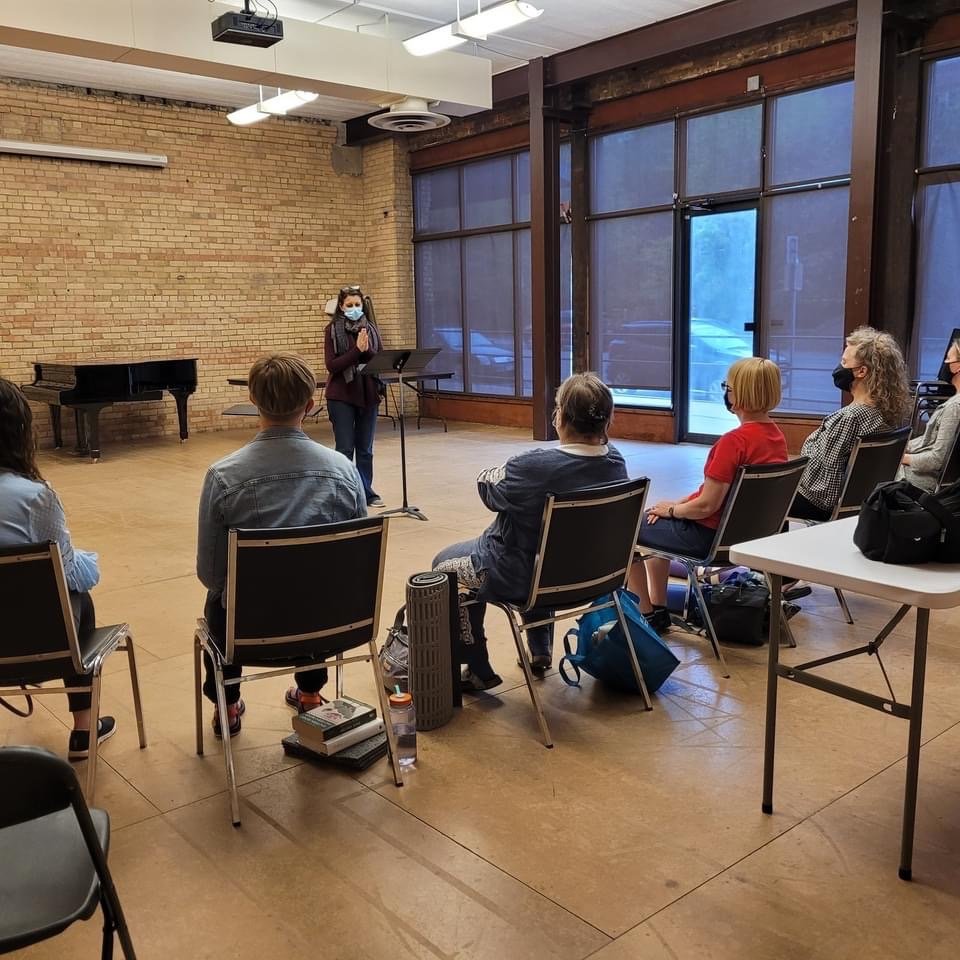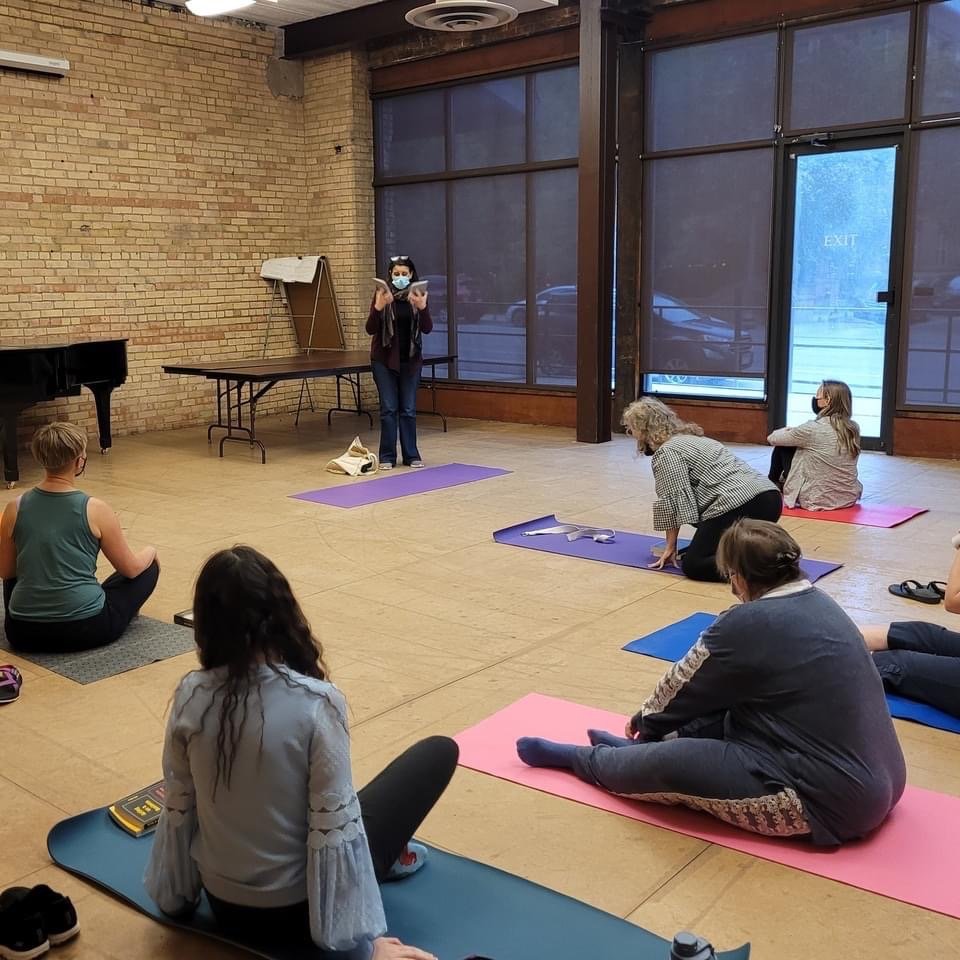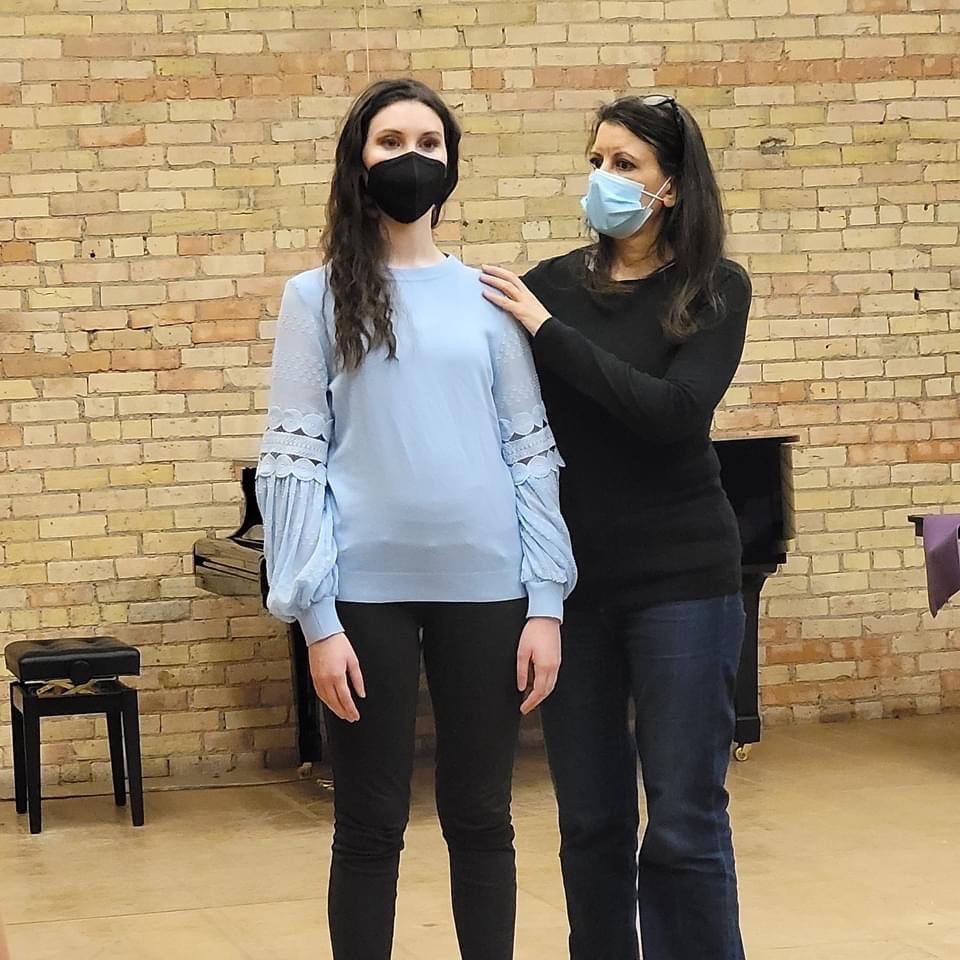LISTEN
Fanfare Magazine Reviews of The World’s Highway
THE WORLD’S HIGHWAY • Sahar Hassan (mez); Members of Ladyslipper Ens • CENTAUR 3683 (47:15)
GINASTERA Cinco canciones populares Argentinas: Canción al arbol del olvido, op. 3/1. Dos canciones: Zamba, op. 10/3. CHAMINDADE Menuet. WEILL (arr. Kradjian) Youkali, Tango Habanera. IVES (arr. Thomas) The Housatonic at Stockbridge. The Things Our Fathers Loved (and the greatest of these was liberty). The World’s Highway. PREVIN Vocalise. MONTSALVATGE Cinco cancíones negras: Cancíon de cuna para dormir a un negrito. Canto negro. MOMPOU Combat del somni: Damunt de tu només les flors. Jo et pressentia com la mar. DE FALLA (arr. Thomas) Siete canciones populares Españolas
Although artist biographies and song texts and English translation where applicable are provided, there are no notes on the music itself for this disc except for a brief note of gratitude from the singer, the American-Egyptian mezzo Sahar Hassan, with a brief line about the program’s geographical diversity (the title taken from a song by Ives). That’s a shame, as the recital itself is rewarding and frequently beautiful.
The opening “Song of the tree of forgetting” (“Cancion al árbol del olvido”) by Ginastera sets the mood well, with its mellifluous piano and flowing melody; its companion piece, “Zamba,” prolongs the beauty. On the basis of these performances, one wonders why Ginastera’s songs are not heard more often (I am not sure I have ever heard any of them live in recital). They say what they need to say without undue prolongation, and are of clear melodic inspiration; and both Hassan and her pianist, Oleg Levin, have clear affection for the repertoire. Perhaps Raúl Giménez and Nina Walker, in their Nimbus recital of Argentinian song (reviewed in Fanfare 29:6 and still available), would be the logical the next step to explore.
The addition of violin for Cécile Chaminade’s lovely Menuet is beautiful, if all too brief. (Chaminade was the mistress of the miniature, her solo piano works still ripe for rediscovery.) Chaminade’s perfumed language offers a more Gallic bent, and the presence of Helen Chang as violinist adds much to the picture. There’s no missing the tang of Kurt Weill as he tackles a slinky tango-habanera in Youkali, for voice, violin, cello, bass, and piano. It is in this latter piece we hear the excellence of Hassan’s vocal technique in her evenness of legato and her control when flying high and loud.
The shift to Ives (in an arrangement by David Evan Thomas) is clear and poignant. The shifting harmonies of The Housatonic at Stockbridge are beautifully understood by Levin, while the brilliantly realized nostalgia of The Things our Fathers Loved (and the greatest of those was liberty) and the folksy The World’s Highway actually make one ache for more Ives. Naxos released a sequence of discs of Ives songs; major singers have realized this repertoire’s value, among them Thomas Hampson and Gerald Finley. Now Sahar Hassan (pardon the pun) adds her voice to those.
Cellist Jane Cords-O’Hara is an eloquent ruminatrix in André Previn’s Vocalise, while Hassam threads her wordless line hauntingly; it’s nice to see Previn recognized more and more as a composer as well as conductor/pianist.
The World’s Highway (2019)
Listen to more samples from The World’s Highway here. This is an album of songs for mezzo-soprano and varied small ensembles. These works are from the early to mid 20th Century. Sahar Hassan sings this truly beautiful program. The World’s Highway is available now at HBDirect and all your favorite streaming and download sites.
And talking of composers we need to hear more of, step forward Xavier Montsalvage. True, Hassan includes his most famous piece, Canto negro, but she also includes the darkly mysterious song that precedes it in the sequence of the five Canciones negras, “Canción de cuna para dormir a un negrito” (Cradle Song for a Little Black Boy) before the virtuoso Canto negro (for both voice and piano, with Levin’s nimble fingers coming in usefully here). Hassan’s clarion crowning gesture underlines the combined strength and beauty of the upper reaches of her voice. Interestingly, that coupling of songs turns up on the Testament release of Nan Merriman (reviewed Fanfare 21:6).
We also need to immerse ourselves in more Mompou. Some high-level pianists have done their bit (Volodos, Plowright, and Hough, while there are two pieces recorded by Michelangeli I am aware of), but his songs exude a sort of crystalline mystery, too. Hassan presents two songs for voice and piano from Combat del somni (The Struggle in the Dream). The perfumed music of the first, “Damunt de tu nomé les flors” (Only flowers over you) cedes to the more turbulent harmonies of “Jo et pressentia com la mar” (I imagined you are like the sea).
With de Falla’s Siete canciónes populares Españolas we enter more familiar territory. It comes in a chamber arrangement by David Evan Thomas, who had previously arranged the Ives. Sometimes it feels a little as if Weill has stepped into the ring, which adds a fascinating tint to the sound palette. All credit is due to the string players in this arrangement, whose control seems total, enabling atmospheres to be prolonged superbly.
The playing time is a little low (a whistle-stop world tour, one might say), but within the 47 minutes Hassan and her colleagues provide much variety, all caught in good if not exceptional sound.
FANFARE: Colin Clarke
Copyright © 2020 by Fanfare Inc.
THE WORLD’S HIGHWAY • Sahar Hassan (mez); Members of Ladyslipper Ens • CENTAUR 3683 (47:15)
In the introductory notes to her Centaur recital CD, mezzo-soprano Sahar Hassan observes: “The repertoire I chose for this CD is near and dear to my heart. Since it spans a wide range of styles and a number of countries in Europe and the Americas, it seemed appropriate to name it ‘The World’s Highway,’ especially (given) that one of the pieces bears the same title.” The disc comprises works by 20th-century composers of Argentine, French, German, American, Spanish, and Catalan birth. Text languages include Spanish, French, English, and Catalan (along with the wordless Previn Vocalise). The accompanying CD booklet provides full original texts and English translations, always a most welcome feature. While it is true that, as Hassan notes, the repertoire encompasses a wide range of styles, the works are all tuneful, often with a strong rhythmic profile, and frequently evocative of folk music. In so many ways, Hassan is a strong and marvelous advocate for this music. Her lyric mezzo has an appropriately dusky quality. Hassan’s diction and legato are excellent. She performs the songs with great feeling and keen attention to the text. Many of the songs require the vocalist to embrace pungent and at times forceful rhythms. Sahar Hassan dispatches this aspect with the keenest relish and artistry. If at times the upper register isn’t quite as secure and focused as the remainder of Hassan’s voice, that aspect impacts this recital but infrequently. Hassan is joined by members of the chamber music Ladyslipper Ensemble (the mezzo is Artistic Director of the group). They include Helen Chang, violin, Jane Cords-O’Hara, cello, Kristen Bruya, bass, and Oleg Levin, piano. The instrumentalists perform beautifully (the David Evan Thomas arrangements of the Ives songs and Falla Siete canciones populares Españolas are a delight). The recording, made at Maud Moon Weyerhaeuser Studio, Minnesota Public Radio in St. Paul, is excellent. It has a natural, lifelike ambience, evoking the atmosphere of a first-rate smaller concert hall. Varied and engaging repertoire, beautifully performed and recorded, and therefore, recommended.
FANFARE: Ken Meltzer
Copyright © 2020 by Fanfare Inc.
GALLERY
